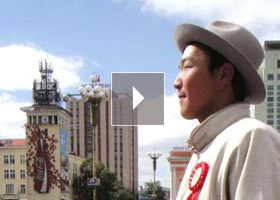Available in: монгол хэл

There is more good news: unemployment is going down, and, if the pattern from the previous high growth episode applies, we think that poverty is also being reduced significantly.
However, there are some caveats to the good news. The global risks are mounting. Recall that Mongolia was one of the worst affected countries during the last crisis (2008/9), being a small, open economy, dependent on mining. Any mineral price shock immediately impacts the budget. And since Mongolia will have to borrow large amounts of money to put in place the infrastructure to get the minerals out of the ground and on to the market, rising emerging market bond yields are also not good news. Finally, China is Mongolia’s main export market, and if growth slows down there, it immediately affects Mongolia. Already, mineral prices are trending down.
 |
| View the slideshow: Mongolia's Economic Growth Accelerates |
Domestically, inflation came in at 11.9 percent in September, and 12.6 percent in October. If you take out food inflation, which has been volatile, core inflation has now consistently, and worryingly, risen throughout the year. This is one of the tell-tale signs of an economy which is overheating. Both the private as well as the public sectors seem to be trying to grow faster than the country’s capacity allows.
Further stoking inflation is the cash distribution to all Mongolian citizens. The government is handing out cash to its citizens to fulfill an escalation of political promises about the sharing of the mining wealth made by politicians in the run-up to the last elections in 2008. Senior politicians have now publicly and privately acknowledged that this is not to be repeated, as the transfers fuel inflation. However, there are general elections scheduled for next year. Better make good on the past promises first, say the politicians. After the elections we will stop the handouts. But time will tell.
Already the economic talk on Mongolia’s avalanche of TV stations is all about rising inflation and how it erodes the purchasing power of the middle class. And half of the informal sector workers we regularly survey as a barometer of how the poor are doing tell us that their current wages no longer cover their basic needs.
Fortunately, the 2012 Budget contains a targeted poverty benefit (being prepared with assistance of the ADB and the World Bank). This would put in place the type of social safety net to protect the poor from hardships—a net so sorely missed during the last crisis.
What are the policy-makers doing about the rising inflation? To contain inflation, the central bank and the government need to work in tandem to pull in the reins of Mongolia’s speeding economy.
The Bank of Mongolia has so far done a commendable job: it raised interest rates three times and banks’ reserve requirements twice, which made the governor rather unpopular in certain circles. But without these unpopular interventions, the inflation picture would have been a lot worse. And the Bank of Mongolia’s actions are clearly not enough, since core inflation has kept rising. So more tightening will be needed.
In the meantime, the government seems to be working in the other direction. The original 2011 Budget had already raised spending by 32 percent over the 2010 budget outturn. Then, the recently passed 2011 Budget Amendment added another 20 percent of public spending to this. Now, the 2012 Budget proposed by government and currently being debated in parliament would set an all time record for expenditure growth.
Without going into the details, the 2012 draft budget is based on very optimistic projections for GDP, revenues and expenditures. But will foreign direct investment continue its stellar rise? Will the mining sector continue to grow, even though logistical capacity constraints are already apparent? And can public investment really be raised this fast? Is this really possible? Economic observers are hoping that parliament can set election fever aside, reign in spending growth, and support more prudent fiscal management: the type of fiscal management as already defined by the Fiscal Stability Law of 2010.
The FSL is landmark legislation passed with overwhelming majority in parliament in 2010. It contains three fiscal rules to save windfall mining revenues, avoid over-borrowing and restrain over-spending. The World Bank assisted in creating the consensus around the fiscal rules contained in this law, which was also conditionality in the successfully concluded IMF Stand-By Arrangement. We shuttled as many as three delegations of parliamentarians and top civil servants around the world, including twice to Chile—a very well-managed copper producer.
Under the law, the application of the fiscal rules to the budget is phased in over time, with only one rule—the saving of windfall mining revenues into a stabilization fund— operational this year. However, since the economic growth is so widespread, this year’s “windfall” revenue growth is coming from many sources, not just mining revenues.
Our advice? With global risks continuing to grow, China’s growth slowing down, mineral prices down, and an economy which is overheating, it would be wise to start implementing the spirit of the fiscal rules now. Because one of the key lessons of recent times is that moderation needs to be applied during the good times, and not be postponed to another day. That day could bring clouds to Mongolia’s eternal blue skies.


Join the Conversation